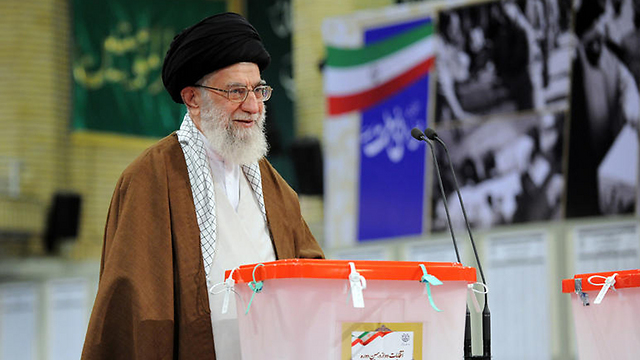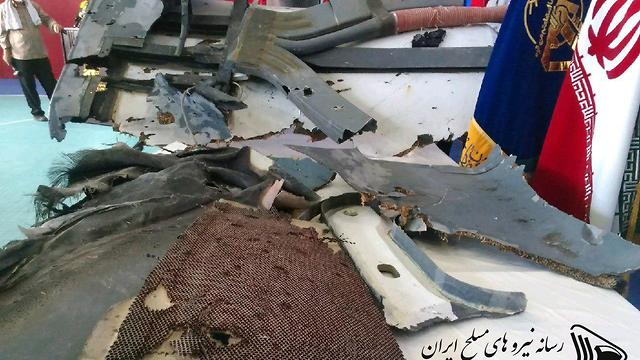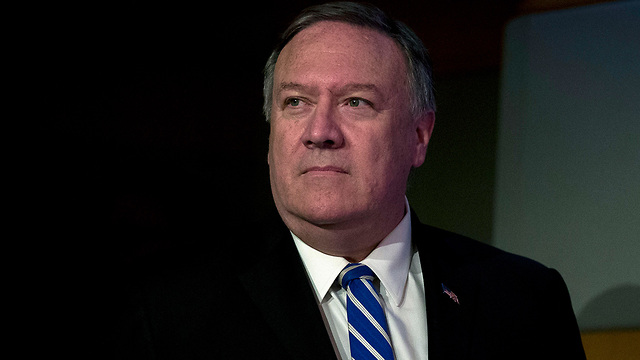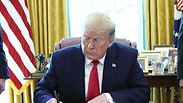
WASHINGTON - U.S. President Donald Trump targeted Iranian Supreme Leader Ayatollah Ali Khamenei and other senior Iranian officials with new U.S. sanctions on Monday, looking for a fresh blow to Iran's economy after Tehran's downing of an unmanned American drone.
With tensions running high between the two countries, Trump signed an executive order imposing the sanctions, which U.S. Treasury Secretary Steven Mnuchin said would lock billions of dollars more in Iranian assets.
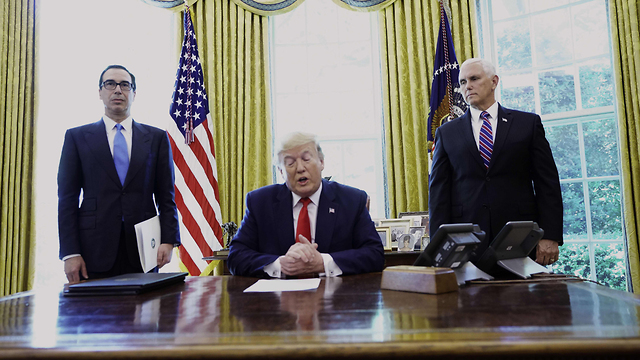
Trump said the new sanctions were in part a response to last week's downing of a U.S. drone, but would have happened anyway. He said the supreme leader was ultimately responsible for what Trump called "the hostile conduct of the regime."
Tehran insists the drone was flying in its airspace, which Washington denied. The U.S. president initially approved a military strike last Thursday to retaliate for the interception of the drone, but called it off at the last minute.
"Sanctions imposed through the executive order ... will deny the Supreme Leader and the Supreme Leader's office, and those closely affiliated with him and the office, access to key financial resources and support," Trump said Monday.
The Trump administration wants to force Tehran to open talks on its nuclear and missile programs and its activities in the region. Tensions between the United States and Iran have grown since May when Washington ordered all countries to halt imports of Iranian oil.
There was no immediate reaction in Iranian official media but at the weekend, state-run news agency IRIB quoted Foreign Ministry spokesman Abbas Mousavi as saying any new sanctions would be "just propaganda" and "there are no more sanctions left."
Mnuchin said Iranian Foreign Minister Mohammad Javad Zarif would be targeted with U.S. sanctions later this week.
Sanctions were also imposed on eight senior commanders of Navy, Aerospace, and Ground Forces of the Islamic Revolutionary Guards Corps (IRGC), the U.S. Treasury Department said.
"These commanders sit atop a bureaucracy that supervises the IRGC's malicious regional activities, including its provocative ballistic missile program, harassment and sabotage of commercial vessels in international waters, and its destabilizing presence in Syria," the treasury department said in a statement.
Trump said the sanctions are a "strong and proportionate response to Iran's increasingly provocative actions."
"We will continue to increase pressure on Tehran until the regime abandons its dangerous activities and its aspirations," he said.
The United States has also blamed Iran for attacks earlier this month on two oil tankers at the entrance of the Gulf of Oman. Iran, in turn, has denied that it is behind the attacks.
Washington has repeatedly imposed sanctions on Tehran since last year, when the United States withdrew from the 2015 deal to curb Iran's nuclear program in exchange for easing of sanctions.
Trump's administration has said the deal struck under his predecessor President Barack Obama did not do enough.
Trump has previously said he would be open to talks with Iranian leaders, but Tehran has rejected such an offer unless Washington drops the sanctions.
'All eyes on shipping'
Meanwhile, U.S. Secretary of State Mike Pompeo discussed Iran and maritime security with rich Gulf Arab allies during a trip to the region on Monday.
A senior U.S. State Department official said that the United States is building a coalition with its allies to protect Gulf shipping lanes by having "eyes on all shipping," following the recent attacks on oil tankers.
Pompeo arrived in the United Arab Emirates after meeting with King Salman and Crown Prince Mohammed bin Salman in Saudi Arabia where talks covered protection for ships in the Gulf.
"Freedom of navigation is paramount," Pompeo tweeted from the Saudi city of Jeddah.
The senior U.S. official told reporters en route to Abu Dhabi that Pompeo and the U.S. Navy is building a "Sentinel" programme for "proactive deterrence". He said a coalition of nations would provide both material and financial contributions, but did not name the countries.
"What the Iranians are doing by shooting down American drones, shooting at other drones in the region not even necessarily over the Gulf, anywhere, is to prevent us from having eyes on them," the official said.
The U.S. official said the deterrents include cameras, binoculars and ships, including from the United States.















